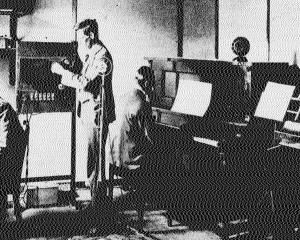With the price of fuel having seemingly rocketed upwards over the past few months to hover around the $2 per litre mark (once again), it is time to put a little bit of reality on to that figure.
In 1861, when the first barrel of crude oil was sold, it fetched the princely sum of US49c - which roughly translates to $US12 in 2008 dollar value.
The relationship between the price of a barrel of crude bought overseas and the price of a litre of petrol at the pumps in NZ is a complex one that varies with governmental decisions on taxes, exchange rates, shipping costs, lag times and other variable factors, so it would be very difficult to even guess what a litre of petrol would have cost then, had it been available at the pumps.
However, in 1970 - when the price of a barrel of crude was about $US3.40 - my own car records show that the price of a litre of regular petrol was close to 9c. These figures, when adjusted to 2008 values using standard inflation calculators, become about $US18 and $NZ1.20 respectively. (The figures following are 2008 values, and oil prices are for Illinois crude).
When the Opec countries quadrupled the price of crude oil from 1973, the pump price started its inexorable rise.
By 1980, with crude oil at $US95 and the price per litre at our pumps having topped $2, there were serious concerns about the ability of the NZ economy to cope with the problems caused by such a price hike.
Enter Peak Oil - that point at which the rate of discovery of new proven and recoverable reserves of oil is not as great as the consumption of the current proven and recoverable reserves.
Murmurings about Peak Oil had already been around overseas for about 20 years, particularly in the US, and the Huppert Peak Theory was used in 1974 to make the prediction that globally, Peak Oil would arrive in 1995.
This added to the dismay in many quarters, and much doom and gloom was predicted in forecasts.
Government initiatives here to reduce our use of oil and our dependence on imported oil were started: carless days, a reduction in the open road speed limit, the rationing of fuel at weekends and the Think Big energy projects, to name a few.
Whether the pain of the '80s in NZ was the direct result of the oil shocks is for historians to debate.
But after the price of petrol here peaked at $2.14 in 1981 and the economy staggered out of its recession in the later '80s, the price started dropping.
By 1998, with the cost of a barrel of oil having fallen to about $US15 and the petrol price having flattened out at a mere 85c in 2000, the economy was in pretty good shape.
The flipside to the pain caused by a decade of high oil prices was that it spawned an amazing number of new and exciting developments all over the Western world.
Among them were solar-powered steam turbines in the Pyrenees, solar water heating panels on private roofs in Boston, hydrogen-powered cars in Tokyo, wave energy generation off the Shetland Islands, tidal barrier power stations in France, a huge hydrothermal power station in the Gulf of Mexico, and test fields of "windmills" in France. Surprisingly, outside of Brazil, biofuel wasn't particularly favoured other than for the introduction of some tax breaks in the USA for ethanol plants.
Unfortunately for the Save the Planet scenario, all of these developments except the wind farms were mothballed as the price of oil plummeted.
Sure, there have been occasional spikes which give a glimmer of hope for the other alternatives above, but a spike is not going to allow time for the necessary investment in capital and expertise to be made to turn these ventures into an economic reality.
A relatively steady platform of higher prices will be needed before much progress will be made in developing new major energy sources, or new technologies to more efficiently harvest our current energy sources.
As the price of oil rises, there will be some relatively short-term pain - but there will also be an inexorable steady transition to the next economic energy sources.
Some of these we may not even know about yet.
For thousands of years wood was our primary energy source, but over the past 200 years that energy source has been well relegated by (in 50-year jumps) firstly coal, then coal/oil, then coal/oil/natural gas, now coal/oil/gas/nuclear/wind.
There are exciting times ahead, and the only real reason I can see for the totally negative hype about Peak Oil is that the media knows how doom, gloom and pessimism is always so much more saleable than their positive counterparts.
Lewis Cross is a former secondary teacher of Physics and Maths at South Otago High School.











